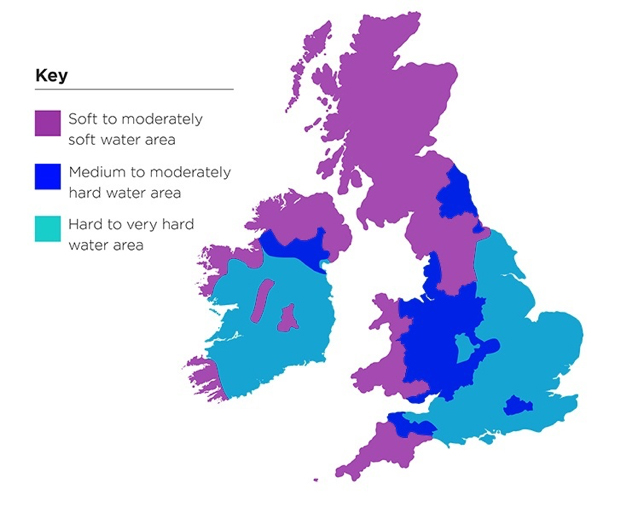Water Quality
Water in different parts of the UK varies in the amount of dissolved mineral ions it contains. This determines whether it is hard or soft water. There are advantages and disadvantages to each, but the damage that can be caused to water pipes and appliances by hard water means that water may need to be filtered.
Hard Water
Hardness is caused by dissolved Magnesium Ions and Calcium Ions. These can get into the water when it comes into contact with limestone and other rocks that contain calcium compounds. This can happen, for example, when rainwater flows over these rocks on its way to a reservoir.
When hard water is heated, harmless lime scale is formed. This can lead to scale forming and may affect the appearance of hot drinks, increase risk of hot water pipes clogging and damaging boilers.
Soft Water
As rainwater falls it is naturally soft, however, as water makes its way through the ground and into our waterways, it picks up minerals like chalk, lime and mostly calcium and magnesium but if those minerals are absent or are in a small quantity the water will remain soft.
Use our postcode checker below to find out the hardness of your water.
Results are based on Regional Water Supply figures and may vary.



